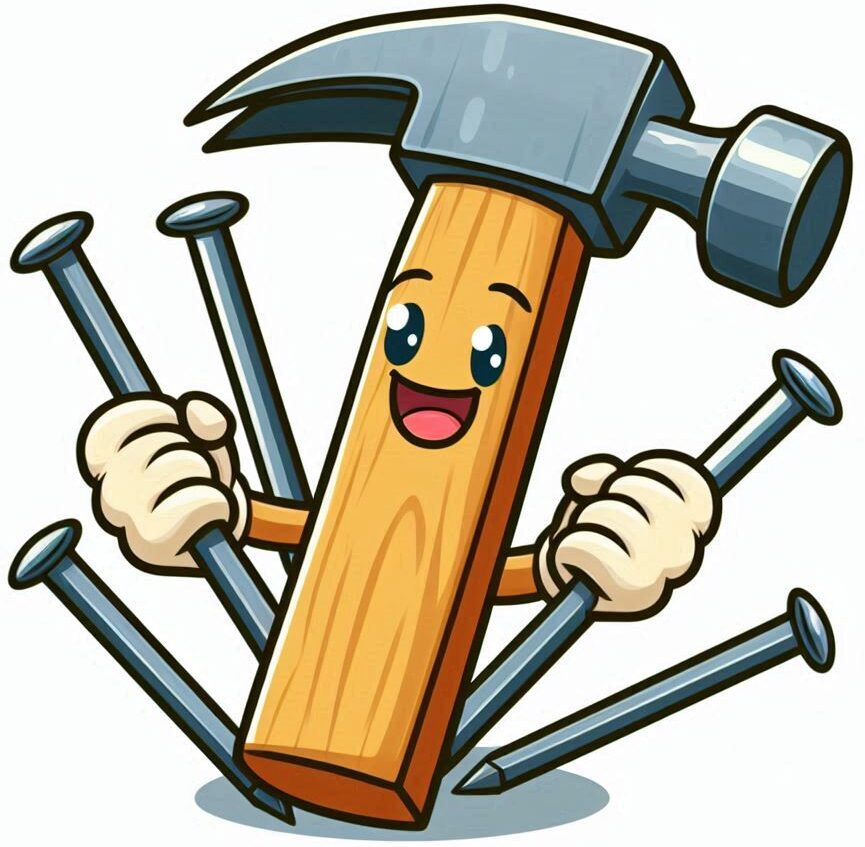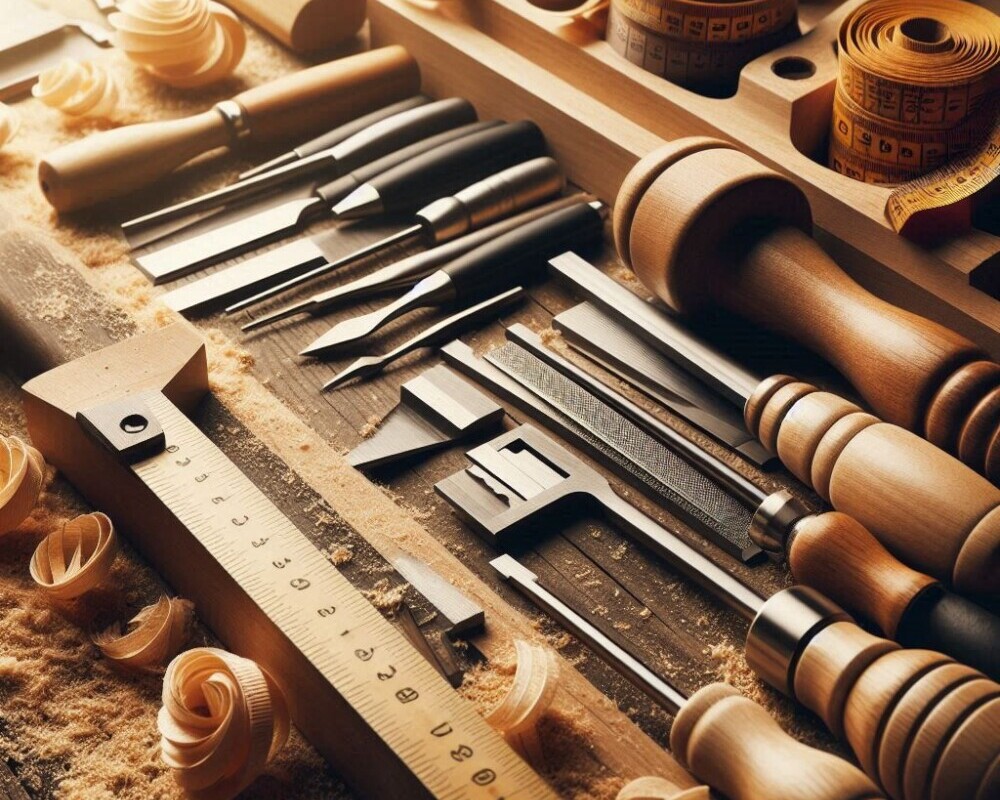
Precision Measuring Tools For Expert Woodworking isn’t just about getting measurements right; it’s the essence of crafting pieces that fit perfectly together, creating a seamless and professional finish. It’s about reliability and trust in every single cut and measurement.
Measurement tools are the unsung heroes of crafting, continuously ensuring that the sections you cut out of raw timber come together with that just-right snugness. Whether it’s a simple ruler or a high-tech laser measure, each has its charm and importance in the workshop.
When we talk about precision, one tool often steps into the spotlight: the micrometer. This nifty device often measures down to the thousandth of an inch, providing unparalleled precision. It’s a stalwart in the arsenal of anyone who’s serious about woodworking accuracy.
Understanding the importance of precise measurements can’t be overstated. It’s not just about fitting pieces together but about avoiding waste, ensuring safety, and achieving that polished professional appearance in every project. Precision can significantly change the final look of your project, turning a decent piece into a masterpiece.
Exploring Precision Measuring Tools: From Basics to Advanced
When it comes to woodworking, having the right tools on hand is half the battle. Understanding the difference between traditional and modern measuring tools is key to making creative designs. You’ll find rulers and tape measures alongside more advanced gadgets like laser distance measurers in any well – equipped workshop. Each type has its own set of pros and cons, so it’s worth taking the time to understand which tool suits each task best.
For those craving precision, stepping up to specialized tools like calipers and micrometers is a game changer. Calipers are great for measuring a wide variety of objects, providing both inner and outer diameter readings with precision. When it comes to micrometers, they excel in measuring thickness with astonishing accuracy.
In terms of the best tools for accurate measurements, it’s hard to beat the vernier caliper. Known for its accuracy, this tool allows for detailed measurements, which is exactly what you need when precision is a priority in your woodworking projects.
Modern innovations have transformed how we approach measurement with digital tools offering ease and quick readings. Digital calipers, for example, eliminate the guesswork associated with analog dials and come with a display that’s easy on the eyes.
Overall, choosing the right tool hinges on the scale of your project and your personal preference. Getting to grips with both basic and advanced tools means you can tackle any challenge that your woodworking journey throws at you.
As an Amazon Associate, I earn from qualifying purchases.
Mastering Accuracy: Techniques for Precision in Woodworking
Crafting with accuracy starts with solid techniques. Developing a consistent approach to measuring and marking is as critical as the tools themselves. An accurate measurement leads to a perfect fit, making your projects look professional and polished.
For those eager to achieve pristine precision, focusing on accuracy is crucial. Begin with a clear plan and double-check your measurements before making any cuts. Consistency in technique can save you from costly errors.
To measure accurately, always start with a stable baseline. Use a reliable straight edge or square to set your reference point. This helps each measurement align perfectly, ensuring your cuts match your design plans exactly.
A step-by-step approach can simplify the process of achieving measurement accuracy. Measure twice, cut once is an old carpenter’s saying that holds a lot of truth. It is much better to do that than to measure once and cuss twice. This adage underlines the idea that re-checking your measurements could save both time and material.
Avoiding common mishaps is all about precision. Handy tips include keeping your pencil sharp for precise markings, ensuring your tape measure is straight, and using the correct tool for each job. Each small step towards accuracy counts in the larger scheme of your masterpiece.
Precision doesn’t just enhance your project’s aesthetics; it makes the woodworking process smoother. Accurate measurements can transform a complicated project into a manageable task, bringing a sense of satisfaction to your craftsmanship.

Essential Marking Tools for Woodworking Excellence
Marking is where woodworking projects start taking shape. Before cuts and joins come precise lines and marks that guide every action. Using the right marking tools ensures that your work stays aligned, maintains integrity, and hits those tight tolerances.
The significance of marking can’t be overstated. It’s the foundation where precision begins. Without it, even the most perfect measurements can go awry. Ensuring your marks are clear and accurate is the key to translating your ideas into reality.
As for the best marking tools, try out marking knives and gauges. These tools prevent that pesky wood grain from throwing off your pencil lines, resulting in a more precise cut line. A marking gauge, in particular, scores a line against the wood grain, which is extra helpful for repetitive tasks like cutting joints.
When seeking out marking tools for the woodworking arsenal, consider the specific demands of your projects. The go-to choices like chalk lines for longer distances or a scribe for fine detail work make all the difference when precision is a priority.
While integrating traditional tools into your workflow, adopting technology can enhance accuracy too. Laser marking tools are increasingly popular for their accuracy and efficiency, offering a seamless blend with classic techniques for an unparalleled experience.
** Here’s a little transparency: Our website contains affiliate links. This means if you click and make a purchase, we may receive a small commission. Don’t worry, there’s no extra cost to you. It’s a simple way you can support our mission to bring you quality content.**
Precision: Crafting Masterpieces with Expertise and Confidence
Embracing precision in woodworking means crafting with confidence. With every cut and join, your expertise grows, and so does the quality of your work. It’s not just the tools but also the skills and practices that refine your craftsmanship.
Learning from seasoned woodworkers can offer insights that textbooks might not. Paying attention to tips and tricks passed down through generations adds depth to your approach.
Building a toolkit that matches your aspirations is vital. Prioritize essential measuring and marking tools that suit your projects, ensuring they are always within reach for every new challenge.
Regular maintenance of your precision tools can’t be overlooked. Simple practices like keeping blades sharp and regularly calibrating measuring devices can significantly prolong their life and accuracy.
Looking to the future, advancements in measuring technologies promise even greater precision. Staying informed about these innovations can keep your woodworking at the cutting edge, ensuring that your handiwork remains both classic and contemporary.


